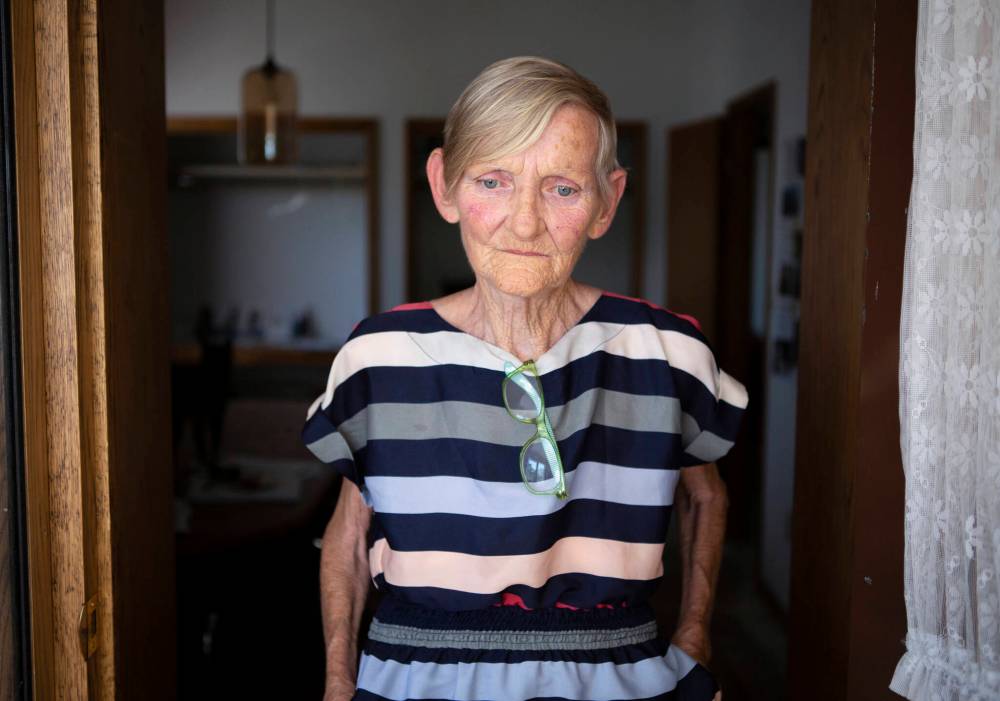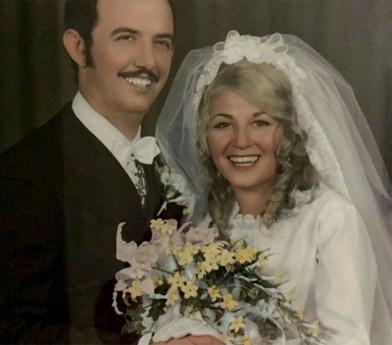A Life's Story
September 10, 2022
Ray of sunshine
Activist, champion for Winnipeg’s marginalized had true spark of compassion
By: Cierra Bettens
She had a prickly exterior that concealed her gigantic, throbbing heart. At her home on Walnut Street, Margaret Ormond always had a child on her hip, a frying pan in one hand, a coffee cup in the other and a cigarette between her fingers.
Ormond was known by her alias, Twinkle, to her family and close friends. To the community, she was known as the matriarch and founder of Sunshine House on the corner of Logan Avenue and Sherbrook Street. She was a research nurse, activist, lapsed Catholic and a person of principle.
Ormond was born on July 28, 1950, in Amherst, N.S. She grew up on the shore of the Atlantic Ocean in the company of five siblings. She died on Aug. 19 after battling rheumatoid arthritis and cancer for a number of years. She was 72.

She worked at the critically-acclaimed Fat Frank’s Kitchen in Halifax for several years and obtained her nursing degree while raising two of her seven children: Sarah, Luke, Lauren, John Daniel (JD), Paul, Jude and Janis.
Sometime in the ’80s, Ormond and her children packed their bags and moved from Halifax to Winnipeg. They eventually settled into a house in the heart of Wolseley.
As her oldest son Luke Doucet described, life was seldom boring at his childhood home — in fact, Ormond didn’t allow for it.
“She wanted us to read, she wanted us to travel… if you claimed to be bored, she would lose her mind,” Doucet said. “Go ride your bike, go see your friends… Do not sit at home and be bored.”
At the height of the HIV-AIDS crisis, Ormond was at the bedside of patients who were ostracized by society. She co-authored dozens of papers on HIV-AIDS research and community harm reduction. Her name glossed the staff lists of a variety of community clinics across the city.
It was through her work that she managed to welcome an additional child to her chaotic dream home.
“It was at the Mount Carmel Clinic that she met a young, 14-year-old girl who was pregnant and who didn’t have a home,” Doucet said. “My mother took her in and raised her at our house and raised her son. And that’s our sister Janis.”
In 1999, Ormond became the founding executive director of the Sunshine House, building on the early work of the Village Clinic and the Kali-Shiva AIDS Society.

People at Sunshine House were encouraged to come as they were. There was no preaching nor political pandering at the Sunshine House. Ormond met people wherever they were at.
“She had a work style and she had an approach that is remarkable but unremarkable at the same time,” Levi Foy, the current executive director of Sunshine House said. “She does what needs to get done but she does it in a way that I’ve never seen anyone do it.”
Her son, JD Ormond, worked alongside his mother at the Sunshine House for several years, helping spearhead a project helping solvent-users.
“It was challenging, it was frustrating, it was rewarding,” he said. “It was all about finding ways to communicate with people and bridge the gap between different groups of people with different knowledge bases and then try to come together to form a common understanding.”
Ormond detested bureaucracy. She hated the red tape she felt prevented change from happening in Winnipeg’s inner city.
“A skyscraper-high pile of parking tickets that kept growing and shrinking and growing and shrinking is a testament to the way she manages anything admin-related,” Doucet said.
She never had an articulate vision for the Sunshine House because it was constantly adapting to best meet the needs of those who came through their doors. If someone had an idea, she ran with it, no matter how far outside the box it was.

She was, as Doucet described at her memorial, a socialist with a libertarian streak.
“She had a profound sense of justice and injustice. She wanted to shake the foundations of the immovable mountains of our society and systems that often don’t pay attention to the organisms and cultures that they disrupt,” JD said.
Ormond was fascinated with shiny things, dark things, pretty things and ugly things. She loved soul music. She made time for Billie Holiday, Ella Fitzgerald, Ray Charles and Sam Cooke.
JD fondly remembers driving down to Detroit with his mother in 2018 to attend Aretha Franklin’s funeral procession.
“We watched as 100 pink Cadillacs drove down the road,” JD said. “It felt like a pilgrimage of sorts, into a culture that is at once glorified and also systemically and historically had to persevere.”
She carried her love of spontaneity and whimsy into grandmotherhood. Doucet recalls watching her jump out of a Toronto train station in a Spiderman suit to surprise her grandson.
She wanted her children to explore the world. Despite being tethered to her homestead in central Winnipeg, she had a profound sense of wanderlust. Ormond once sent an 11-year-old Doucet on a train across Canada equipped with Twizzlers, fuzzy peaches, warm juice boxes and a tattered copy of The Catcher in the Rye.
Foy believes Ormond would cringe at the thought of having her accomplishments fêted in the Free Press. She won many awards and accolades over the years — the Manitoba Honour 150 award and the Canadian Association for HIV Research’s Red Ribbon to name a few — but never wanted a second of adulation.

“She went against the grain. She challenged norms. She did a lot to change people’s opinions about what the world was and our place in it,” JD said.
Ormond’s soul lives on in Sunshine House where her work, dedication and principles remain as inseparable threads in the tapestry of Winnipeg’s inner city. In the days following her death, hundreds showed up to a sacred fire to pay their respects and share many stories of how Ormond’s compassion indelibly impacted them.
“Her principles are still being upheld,” JD said. “The firm hand of compassion is displayed there.”
cierra.bettens@freepress.mb.ca
A Life's Story
February 21, 2026
‘There was nobody else like Kevin’
Career electrician loved cars, music and food
View MoreA Life's Story
February 14, 2026
Living, loving and laughing
Community leader took care of others as a nurse and devoted friend
View MoreA Life's Story
January 17, 2026
Curious and fearless
Multi-talented mother embraced all opportunities
View More






